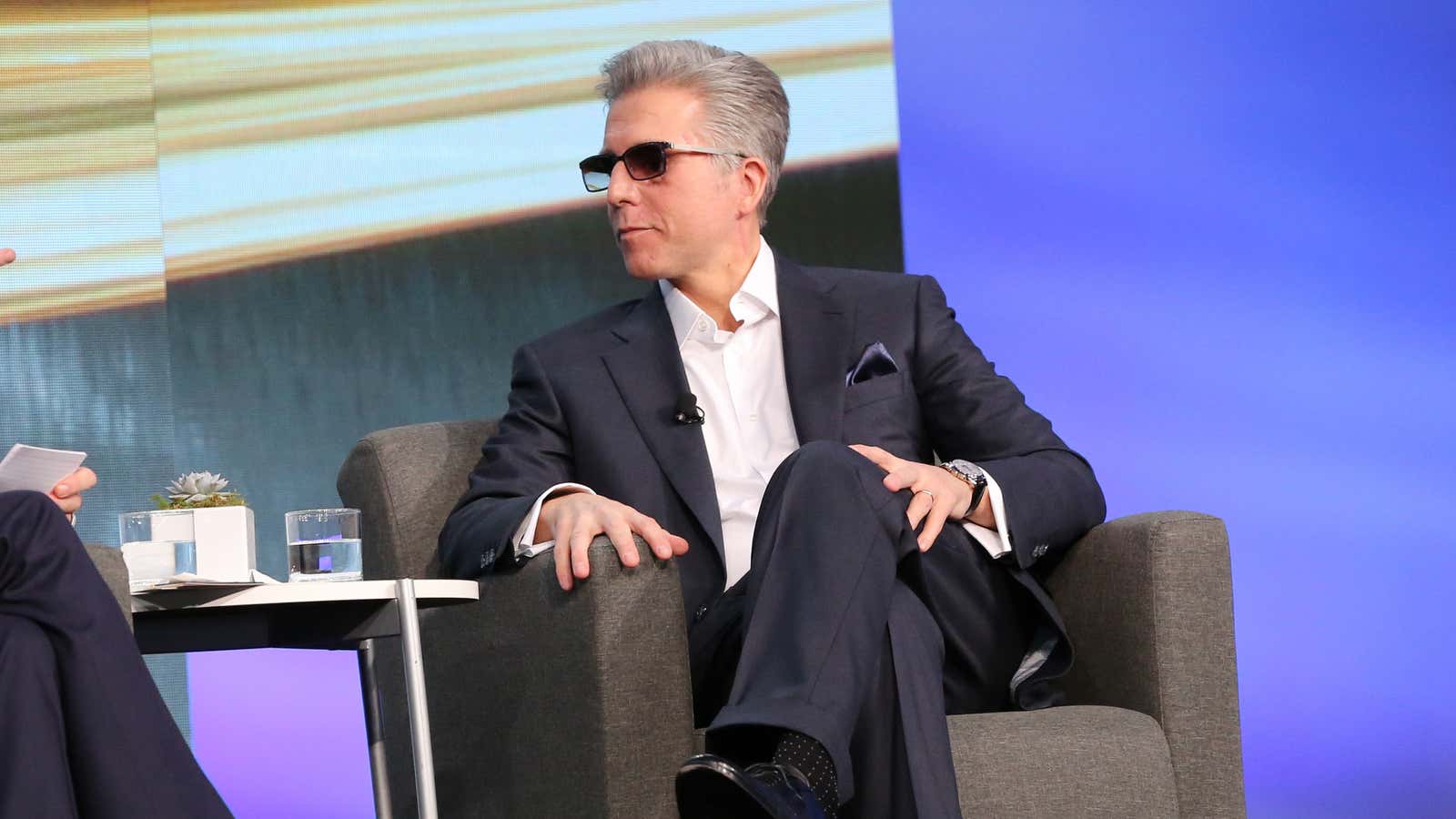“We are all the embodiment of our life experiences,” says Bill McDermott, the CEO of German business technology giant SAP.
McDermott’s life experiences this year were ones he couldn’t have anticipated. In early July, he fell down stairs during the middle of the night while holding a glass in his hand. The glass lacerated his face and left him fighting to save his left eye.
McDermott, 54 years old, was thrust with violent abruptness into the heart of the US health-care system. In the end, his eye couldn’t be saved. He now wears tinted glasses when out in public. Until recently, he curtailed travel between SAP’s headquarters in Germany and his home in the US.
But his experience has McDermott training the resources of SAP more squarely on the health-care sector. He’s got his executive board’s approval to invest more of SAP’s money and strategic focus in its health-care division, with an emphasis on personalized medicine.
McDermott observed that his most effective doctors and medical providers were sending text messages on their phones between them to relay critical information about his care. That was seemingly the most reliable way for them to make sure that the information got through.
“How can it be that texting is the only real-time form of communication?” McDermott tells Quartz, speaking on the sidelines of the EY Strategic Growth Forum. “They’re working around the system, and they’re good at it. I love that and I respect that, but I think we can do better for them.”
He thinks that health-care tech could build on the approach of the customer relationship management software that companies like SAP have provided to businesses. That sort of software can be used to focus on a patient, and coordinate the different information and interactions they have with health-care providers. “Personalized medicine is a lot like CRM,” McDermott believes. The company’s Hana data platform, already in use in cancer research and treatment, is among the SAP technology he hopes to apply further to improving health care.
McDermott acknowledges other organizations are already working on these problems. He believes health-care professionals like the doctors and nurses who treated him this summer are underappreciated. And while it’s a chance for SAP to make money, “I want us to be known for putting the patient ahead of all other priorities, including commercial ones,” McDermott says.
